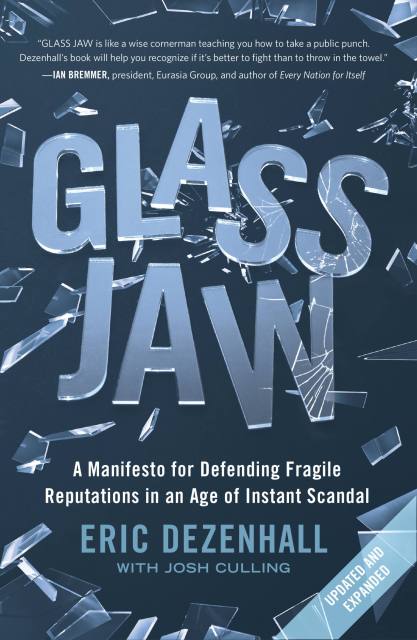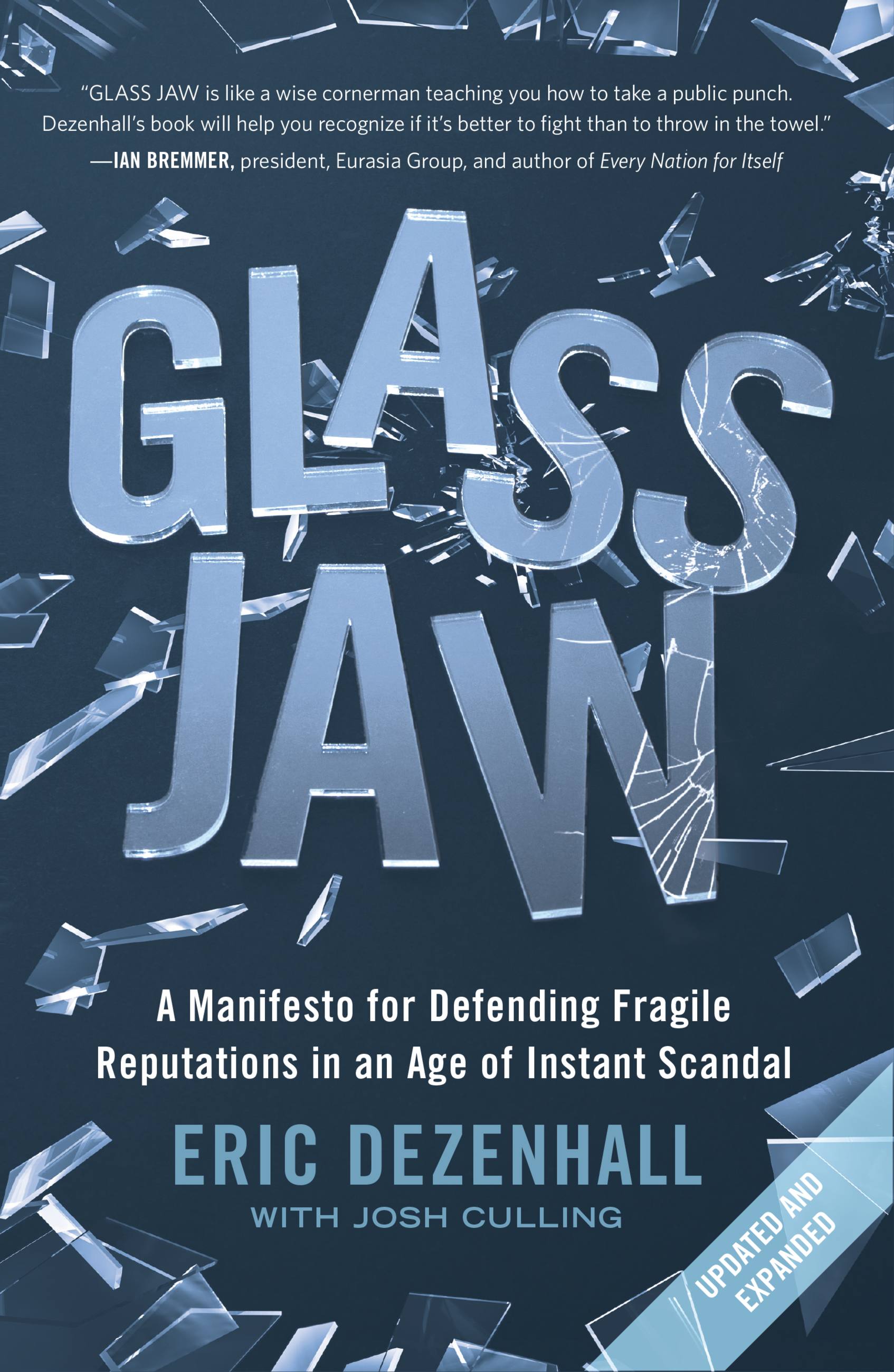By clicking “Accept,” you agree to the use of cookies and similar technologies on your device as set forth in our Cookie Policy and our Privacy Policy. Please note that certain cookies are essential for this website to function properly and do not require user consent to be deployed.
Glass Jaw
A Manifesto for Defending Fragile Reputations in an Age of Instant Scandal
Contributors
Contributions by Josh Culling
Formats and Prices
- On Sale
- Jun 21, 2022
- Page Count
- 352 pages
- Publisher
- Twelve
- ISBN-13
- 9781538725696
Price
$17.99Price
$22.99 CADFormat
Format:
- Trade Paperback $17.99 $22.99 CAD
- ebook $11.99 $15.99 CAD
- Hardcover $37.00 $47.00 CAD
- Audiobook Download (Unabridged)
This item is a preorder. Your payment method will be charged immediately, and the product is expected to ship on or around June 21, 2022. This date is subject to change due to shipping delays beyond our control.
Buy from Other Retailers:
GLASS JAW is a manifesto in the vein of art of war for an age where scandal can destroy a company’s brand and reputation in an instant—from Eric Dezenhall, who runs an elite crisis-management firm in Washington.
In this updated edition, Dezenhall examines the intersection of politics and business and the fallout from the corporate “woke” movement “cancel culture,” and #MeToo movement. More importantly, he tells us why some players survive attacks in the town square and others do not. In boxing terms, a tough-looking fighter who can’t take a punch is said to have a “glass jaw,” and so it is these days with targets of controversy. Down the rabbit hole of scandal, the weak are strong and the strong are weak. In GLASS JAW, Dezenhall analyzes scandal and demystifies the paper tiger “spin” industry, offering lessons, corrective measures, and counterintuitive insights. From the boardroom to the parenting messaging board, scandals erupt every day. GLASS JAW explains this changing nature of controversy and offers readers counterpunches to best protect themselves.
-
"Today, one product defect, one offensive remark-combined with the power of instantaneous worldwide social networking-can bring down the mightiest giant. GLASS JAW analyzes how scandals spiral out of control and details the hard work required to regain a lost reputation. Dezenhall's cautionary tales are fascinating-and should serve as a stern warning to anyone with a reputation to lose."Daniel H. Pink, author of To Sell Is Human and Drive
-
"I highly recommend Eric Dezenhall's GLASS JAW for anyone interested in reputational risk management in an age where no one is safe from scandal. GLASS JAW is like a wise cornerman teaching you how to take a public punch. No crisis is ever the same, but Dezenhall's book, rich with amusing examples and cautionary tales, will help you recognize if it's better to fight than to throw in the towel."Ian Bremmer, president, Eurasia Group, and author of Every Nation for Itself
-
"With GLASS JAW, Eric Dezenhall once again offers fascinating and timely insights into the gladiatorial arena of modern crisis management. Like an Amazing Randi of communications, he debunks anyone claiming to perform PR magic as a fraud. Instead, he offers realistic strategies tempered by hard truths. We've been studying human behavior and how good and bad people react under great stress for quite some time, but we always learn something valuable from Eric."Former FBI Special Agent John Douglas and Mark Olshaker, bestselling authors of Mindhunter, The Anatomy of Motive, and Law & Disorder
-
"From Silicon Valley to the factories of the 'old' economy, marketplace power has never been more precarious. Eric Dezenhall's GLASS JAW is to damage control what Taleb's Black Swan is to economics-a jeremiad on how the seemingly powerful are increasingly at the mercy of the seemingly powerless. This book is the field guide anyone in a position of responsibility will want in the foxhole with them when their reputation is on the line."Deborah Perry Piscione, New York Times bestselling author of Secrets of Silicon Valley: What Everyone Else Can Learn from the Innovation Capital of the World
-
"During my 30 years of helping people navigate the risks of public life, Eric Dezenhall has emerged as the most effective warrior and teacher. GLASS JAW offers the highest-resolution image of controversy in the new millennium, showing who wins, and how--who loses, and why."Gavin de Becker, New York Times bestselling author of The Gift of Fear
-
"This is not a book of morality but pragmatism...[Dezenhall] effectively shows how dramatically things have changed, from a partisan perspective that maintains, 'social media promotes warfare,' and that, as with guerrilla warfare, 'David has become Goliath, and Goliath has become David.'"Kirkus Review
-
"Lots of practical advice."The Economist
Newsletter Signup
By clicking ‘Sign Up,’ I acknowledge that I have read and agree to Hachette Book Group’s Privacy Policy and Terms of Use







